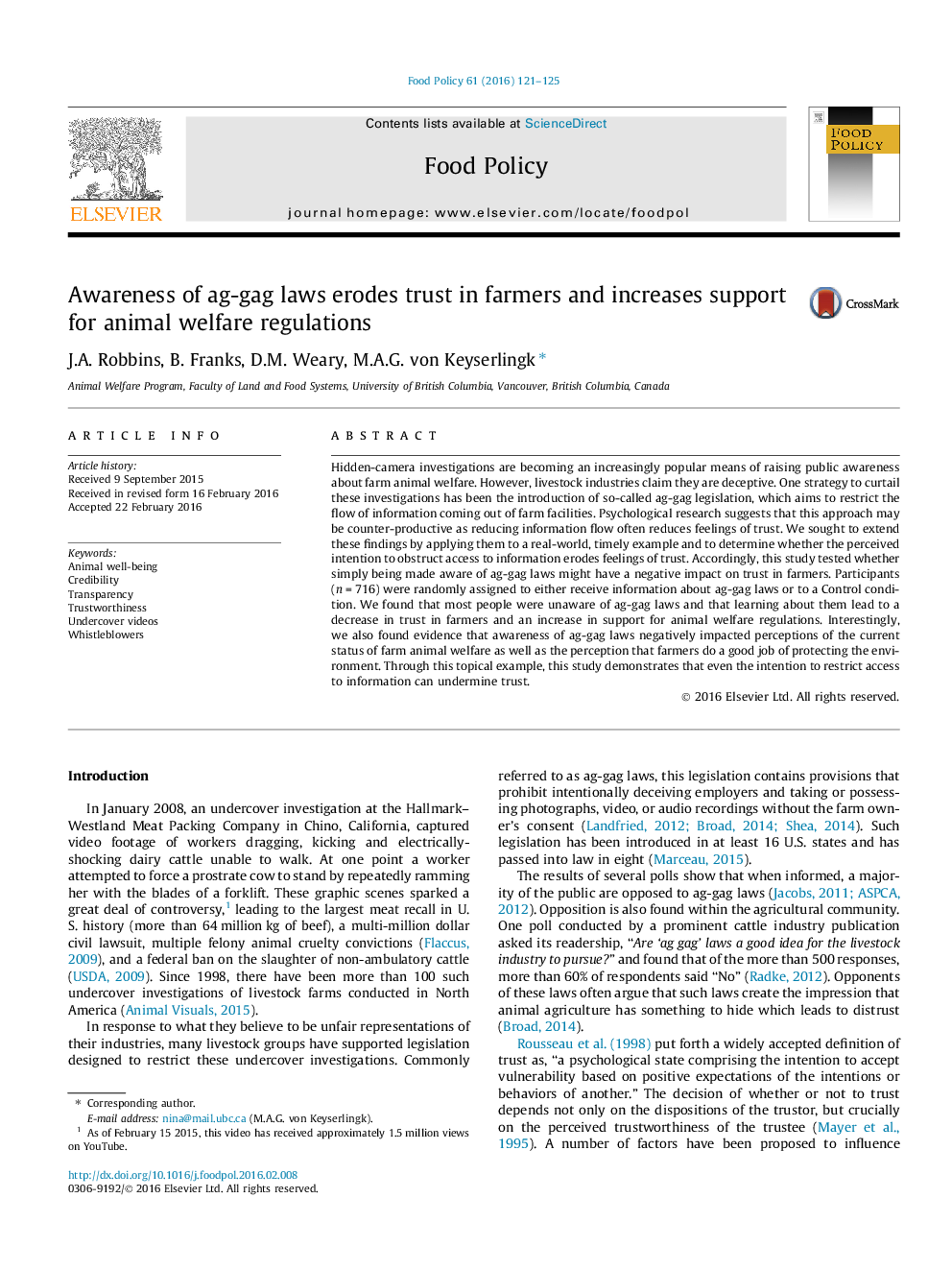| Article ID | Journal | Published Year | Pages | File Type |
|---|---|---|---|---|
| 5070233 | Food Policy | 2016 | 5 Pages |
Abstract
Hidden-camera investigations are becoming an increasingly popular means of raising public awareness about farm animal welfare. However, livestock industries claim they are deceptive. One strategy to curtail these investigations has been the introduction of so-called ag-gag legislation, which aims to restrict the flow of information coming out of farm facilities. Psychological research suggests that this approach may be counter-productive as reducing information flow often reduces feelings of trust. We sought to extend these findings by applying them to a real-world, timely example and to determine whether the perceived intention to obstruct access to information erodes feelings of trust. Accordingly, this study tested whether simply being made aware of ag-gag laws might have a negative impact on trust in farmers. Participants (n = 716) were randomly assigned to either receive information about ag-gag laws or to a Control condition. We found that most people were unaware of ag-gag laws and that learning about them lead to a decrease in trust in farmers and an increase in support for animal welfare regulations. Interestingly, we also found evidence that awareness of ag-gag laws negatively impacted perceptions of the current status of farm animal welfare as well as the perception that farmers do a good job of protecting the environment. Through this topical example, this study demonstrates that even the intention to restrict access to information can undermine trust.
Related Topics
Life Sciences
Agricultural and Biological Sciences
Food Science
Authors
J.A. Robbins, B. Franks, D.M. Weary, M.A.G. von Keyserlingk,
